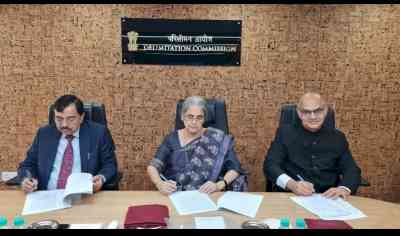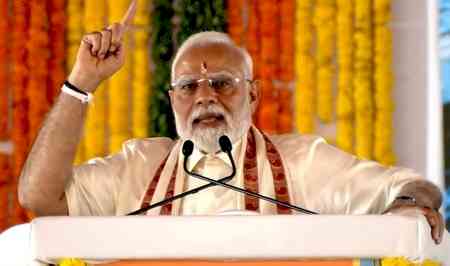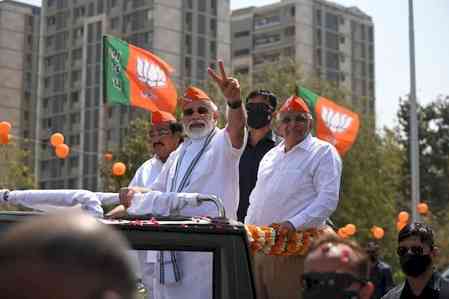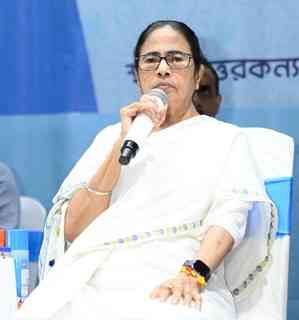Why J&K parties are upset about delimitation commission's final order
The Jammu and Kashmir delimitation commission was set up on March 6, 2020 and had passed its final order on May 5, 2022.

Sheikh Qayoom
Srinagar, Sep 3 (IANS) The Jammu and Kashmir delimitation commission was set up on March 6, 2020 and had passed its final order on May 5, 2022.
The commission was entrusted with the work of delimiting the Assembly and Parliamentary Constituencies in the union territory on the basis of 2011 Census and in accordance with the provisions of Part-V of the Jammu and Kashmir Reorganisation Act, 2019 and the provisions of delimitation.
The commission was headed by Justice Ranjana Prakash Desai, a retired Judge of the Supreme Court; Sushil Chandra, Chief Election Commissioner; and K.K. Sharma, Jammu and Kashmir Election Commissioner.
In its final order, the commission delimited 90 Assembly constituencies and five Parliamentary constituencies for the union territory.
Of 90 Assembly constituencies, 43 are in Jammu division and 47 in Kashmir division.
The commission reserved nine seats for the Scheduled Tribes (ST) and seven for Scheduled Castes (SC).
Reservation for the STs had been done for the first time.
The final order provides at least two members, one of them must be a female, from the community of Kashmiri migrants in the Assembly and be given power on a par with that of the nominated members of the Legislative Assembly of Puducherry.
The commission order further said: "The Central government may consider giving the Displaced Persons from Pakistan occupied Jammu and Kashmir some representation in the Jammu and Kashmir Legislative Assembly by way of nomination of representatives of the Displaced Persons from Pakistan Occupied Jammu and Kashmir."
In its final order, the 5 Parliamentary constituencies were delimited by the commission by treating Jammu and Kashmir as one single union territory.
Therefore, one Parliamentary constituency has been carved out by combining Anantnag district in the valley and Rajouri and Poonch districts of Jammu region.
By this reorganisation, each of the five Parliamentary constituencies will have an equal number of 18 Assembly constituencies.
All regional mainstream parties. including the National Conference (NC), Peoples Democratic Party (PDP), Peoples Conference (PC), Apni Party and J&K National Panthers Party, have refused to accept the commission's final order.
These parties maintain that the delimitation process has been done in a favour to the BJP, an allegation vehemently denied both by the commission members and the saffron party leaders.
The NC has challenged the power to constitute the delimitation commission in the Supreme Court.
Another allegation by these regional parties is that the delimitation commission has taken the 2011 Census as the basis for population, but ignored the actual numbers in its delimitation order.
Would the delimitation order really impede the victory chances of the regional political parties? Is the exception taken by these parties to the final order so serious that these parties might not contest the forthcoming assembly elections?
The second possibility has been ruled out by all the regional parties who have decided to contest the Assembly elections even if the order is not set aside by the apex court.
Does the final order somehow tilt the balance in favour of the BJP?
If giving reservations to the STs and migrant Kashmiris favour the BJP then its rivals have already lost half the match.
The BJP is seen as a centrist Hindu party and interestingly, all the nine ST seats are predominantly made of Muslim voters.
The argument by the regional parties fails to hold water so far as giving reservations to STs, SCs and migrant Kashmiris is concerned.
For the valley-centric political parties, the increase in the number of seats from the previous 37 to 43 for the Jammu division seems to present the main problem.
In the previous 87-member Legislative Assembly, the valley had 46 seats, Ladakh four and Jammu division 37.


 IANS
IANS 








